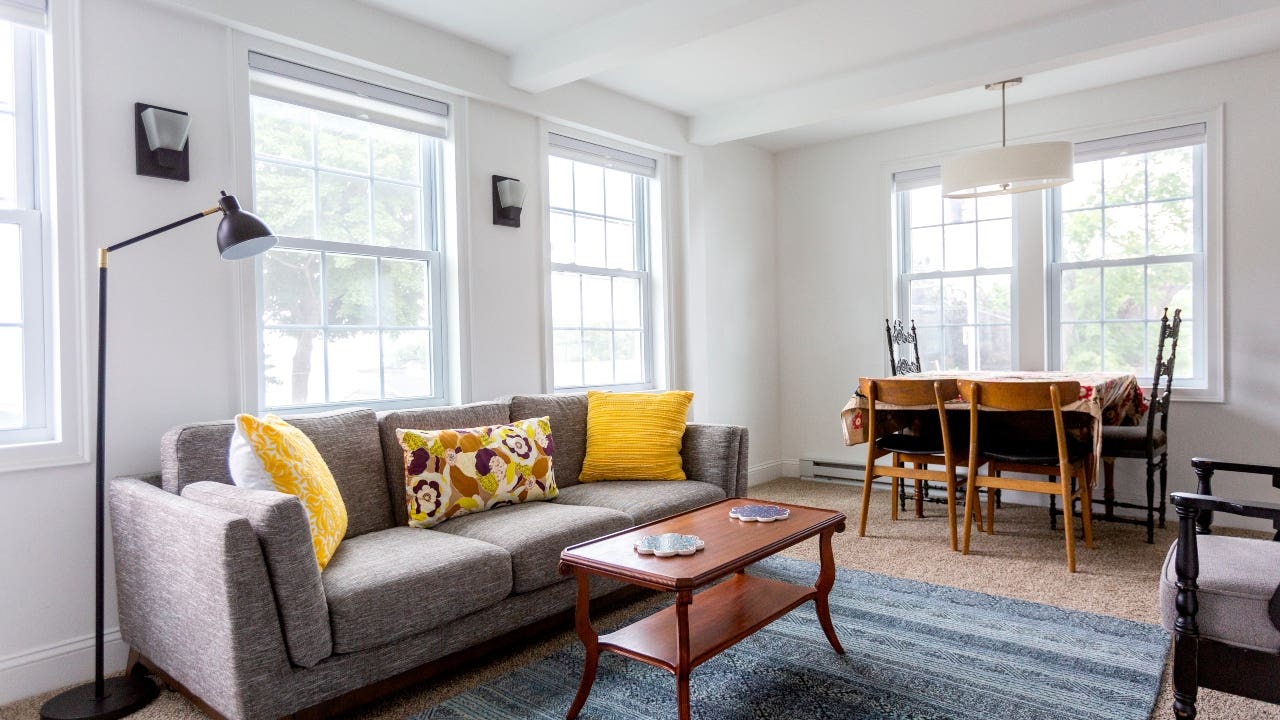Selling a rental property: Tips on taxes, tenants and timing

When you bought your rental property, you likely had plans in mind for your investment. It might make sense to offload it at some point, though, maybe due to rising property taxes or a change in strategy. There are some considerations to make when selling a rental property no matter the reason.
1. Capital gains tax and lowering your liability
Selling a rental property is different from selling a primary residence. If you earn money from the sale, the proceeds up to a certain threshold won’t be taxed with the home you live in. For rental investors, that’s not the case. Here’s what to know:
- If you owned the rental property for one year or less before selling it, the IRS considers it a short-term capital gain, so you’d pay the same tax rate on the sale as your income tax rate.
- If you owned your rental for longer than a year, the sale would qualify for a lower tax rate as a long-term capital gain. For the 2021 tax year, these lower tax rates are 15 percent for single filers with gains between $40,401 and $445,850 or 20 percent for single filers with gains over $445,850. (Here are the long-term capital gains rates for heads of household and joint filers.)
There are some ways to lower your tax liability when you sell, one of which is the 1031 like-kind exchange — essentially, selling your rental property, then putting those proceeds toward buying a “like-kind” property (meaning another income property) and paying the taxes owed after the deal finalizes. With this strategy, you have 45 days after selling your property to find another one, then 180 days (six months) to close on it. You’ll avoid a sizable tax liability if you can pull it off and have another unit to generate income with.
If your rental property is unoccupied and you have time before you need to part with it, you might consider establishing residence there instead. Doing so for at least two years shows the IRS you fulfilled ownership and use requirements that allow you to exclude the first $250,000 of the sale proceeds from capital gains tax (or $500,000 if married).
Lastly, if you plan to make repairs before selling, deductions might be available to you. With this and any other tax questions, it’s always best to consult with a financial advisor or tax professional to ensure you’re maximizing your deductions.
2. Accounting for tenants
Before selling your rental property, you need to consider your tenant. Should you want the place vacated before selling, you could wait until the lease expires or offer an enticing buyout. However, keep in mind that each state’s laws differ on how long you must give tenants notice to vacate.
Alternatively, if you don’t mind the tenant staying, you can use this as a selling point to potential investors, especially if the tenant is reliable with rent payments and isn’t a nuisance. In most cases, once the sale goes through, the lease transfers to the new ownership.
3. Timing the sale
While no one can predict the housing market or the outcome of any investment, you might benefit from selling your rental property at a specific time.
One gauge to consider is your capitalization rate (or cap rate), which indicates the strength of an investment property. If your rental yields a lower cap rate, it might be a good time to sell. RentSpree’s cap rate calculator can help you crunch the numbers.
There are other factors you might consider, as well, such as:
- Average rent prices in your area
- Increasing property taxes
- New-construction projects in your area
For example, if the property tax on your rental rises by several thousand dollars, it might not be financially feasible to hang onto the unit. Likewise, if more rental units are being built in your area, there could soon be more options for tenants, lowering rent prices and your income potential.
A real estate agent who specializes in rental properties can be an invaluable ally in determining when to sell and what repairs or improvements, if any, to make. If you used an agent to help you find the property when you bought it, it might make sense to work with that agent again to list it.
Why we ask for feedback Your feedback helps us improve our content and services. It takes less than a minute to complete.
Your responses are anonymous and will only be used for improving our website.






